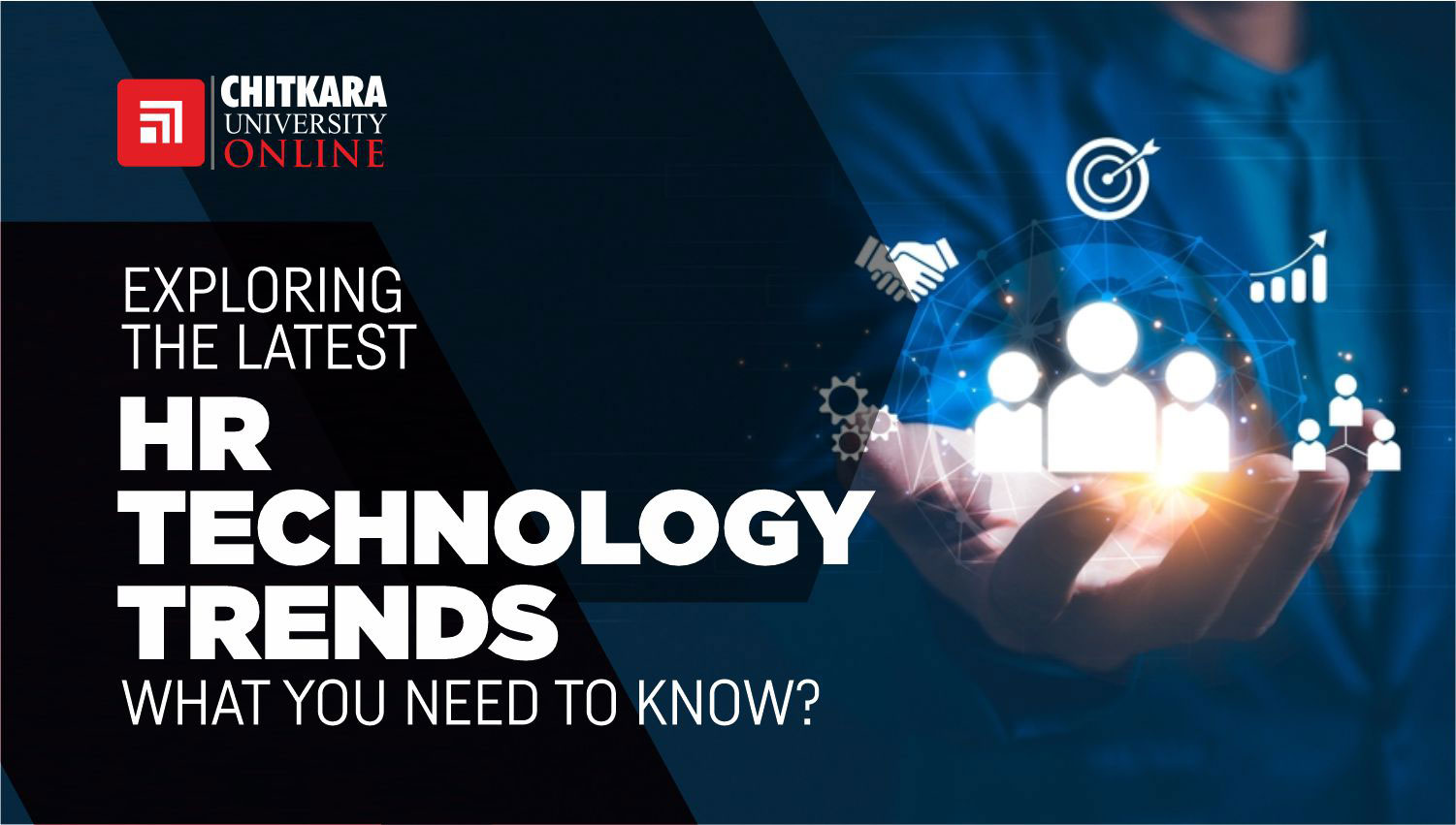Technology advancements have changed the way HR Management works offering software applications and HR platforms a way to store key data, automate tasks, and ensure informed decision-making.
Human Resource professionals must keep up with the changing workplace dynamics for improving business growth, efficiency, and company morale. Although it is important to know what the future of HR looks like, the HR Technology trends in 2024 also suggest a focus on using technology for making smart business decisions that can improve the employee experience end-to-end.
In this blog, we will explore some of the major Latest HR technology trends that are likely to shape the future and all that you need to know if you wish to succeed in the HR field.
Top HR Technology Trends
1. Adopting Skill-Based Practices: There was a time when most employers only focused on a candidate’s experience, specifically during the hiring process. Resumes were gauged to find out whether a candidate is in a good role for the position or not paying attention to details like their previous roles.
Employers moving from skill-based HR practices to traditional processes is one of the most important technological trends in HRM. The skill-based hiring involves using psychometric tests on candidate assessment software rather than resumes to objectively assess whether candidates have the required skills for the role or not.
2. Upskilling, Reskilling, and Continuous Learning: Another one of the top HR technology trends is focusing on employee development inspired by the need to adapt with the workforce to an increasingly digital work landscape.
Many employers require upskilling strategies for coping with the changing requirements of their roles. HR departments often benefit from employee training programs as an important part of their talent management with professionals learning new skills to change their job function completely.
With improved insights into the employee skill sets that come from regular testing, employers can strengthen their skills available in organizations targeting weak areas and gaps with comprehensive training and mentorship programs.
3. Workflow Automation: The modern HR teams are tasked with complex and sensitive administrative tasks. For instance, tasks involving coordination and monitoring a company-wide employee assessment process are a perfect example.
HR managers cite this as one of the most time-consuming and detail-oriented tasks, particularly with the new trend of providing frequent reviews and continuous feedback. A significant part of this involves capturing, assessing, and measuring data.
The HR systems use intelligent workflow automation as an ideal fit from scheduling and coordinating to assessing various data sets to make unbiased bonus and salary raise decisions.
4. Using AI Strategically: Using AI in HR is not one of the latest HR technology trends. Many tools used for HR automation employ AI technology to streamline administrative tasks. The resume screening software often uses AI algorithms to find key information and organise standardised candidate profiles in an applicant tracking system.
That said, an increasing number of employers are using AI to support strategy tasks and not just administrative ones when it comes to data analytics. The common uses for AI in HR are using attrition modeling to find employees who may leave, predicting candidates who can become high performers, and choosing the best fit for a role on resume analysis.
5. Increased Transparency: Another way human resources technology trends can reduce the administrative load for HR workers is by streamlining tasks and removing them completely. With employee self-service technology, HR leaders do not just have to waste time fielding frequently asked questions from their employees but they can also check for themselves.
An example is using an HR chatbot to answer these questions. An employee can simply log into a remote work tool and ask the chatbot when their next paycheck is due. This chatbot can already be connected to payroll software and deliver useful information without involving any HR worker.
6. Alternative Work Models: Organisations are giving their employees more control over how they work by adopting flexible schedules and embracing remote and hybrid working. The HR tech trends offer a way for employers to cut down costs and for employees to achieve better work-life balance.
If organisations maintain a physical work environment along with remote working, then hybrid work technology models must be considered for facilitating hybrid collaboration. This is not just limited to software but hardware as well including microphones that can be passed around in meetings for remote joiners so that they can hear loudly and clearly.
Also Read: Is an Online MBA in HR Worth It in 2025? Here’s the Real Deal
How Does an Online MBA In HR Help In Learning More About Latest HR Technology Trends?
Pursuing an online MBA in HR from a renowned institution such as Chitkara University Online is designed to offer a deep understanding of traditional HR practices and modern technological advancements. Below mentioned are how an online MBA in HR prepares you for a tech-driven HR landscape.
1. Curriculum: The curriculum of an online MBA in HR covers the fundamental HR principles and advanced topics including HR analytics, Strategic HR management, and technologies in HR. This is a combination that ensures a holistic understanding of theory and practice.
2. Flexibility and Accessibility: Online MBA Programs offer flexibility allowing you to learn at your own pace and schedule your lessons as you want. This is beneficial for working professionals who are looking to upskill without disrupting their professional lives.
3. Practical Exposure: Many programs include practical projects, case studies, and even internships that provide real-world experience in using HR technologies which is a hands-on approach that helps in understanding the application of theoretical knowledge.
4. Networking Opportunities: Online MBA programs often facilitate networking through virtual classrooms, alumni networks, and discussion forums. Engaging with peers and professionals from diverse backgrounds can offer valuable insights and opportunities.
5. Expert Faculty: The courses are typically taught by industry experts and experienced faculty members who bring a lot of knowledge and practical insights into the classroom. Learning from professionals helps in bridging the gap between academic concepts and industry practices.
To Sum It Up
Pursuing an Online MBA in HR is a strategic move for any HR professional who wants to stay competitive in the digital age. By equipping yourself with advanced knowledge of HR technologies, graduates can position themselves to manage and optimise HR functions, drive organisational success, and also enhance the employee experience.
With the evolvement of HR technology, staying informed and adept at using these tools is not simply a benefit but also a necessity. An online MBA in Human Resources offers the education, skill, and flexibility required to master these trends and lead modern HR management.
In case you are ready for a successful professional career in HR management, you must consider enrolling for an online MBA in HR and start your journey towards becoming a tech-savvy leader today.
FAQ’s
1. What are the latest HR technology trends in 2024?
Some key HR technology trends include AI-driven recruitment, workflow automation, skill-based hiring, upskilling and reskilling programs, hybrid work models, and employee self-service tools.
2. How is AI transforming HR management?
AI is used in resume screening, attrition modelling, performance predictions, and employee engagement analytics, helping HR leaders make faster and smarter decisions.
3. Why is continuous learning important in HR today?
With digital transformation, continuous learning ensures HR professionals stay updated on new tools, technologies, and workplace practices, making them more effective leaders.
4. How does an Online MBA in HR help professionals stay updated with HR technology?
An Online MBA in HR offers courses on HR analytics, digital HR systems, and case studies, providing practical exposure to the latest HR technologies and strategies.
5. Is an Online MBA in HR worth it for future careers?
Yes. It equips graduates with advanced HR and tech skills, enhances career prospects, and prepares professionals to lead in a tech-driven workplace.





